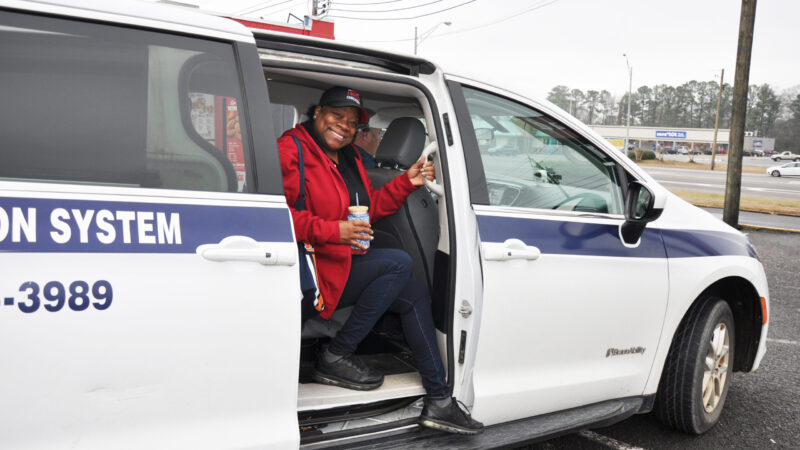Charter Schools 101
A bill to authorize charter schools in Alabama is dead in the state legislature, but don’t expect the debate to die down anytime soon. President Obama is pushing charter schools, and several of the gubernatorial candidates say they support the idea as well. But just what is a charter school? They’ve been around for more than a decade in some other states, but here in Alabama there seems to be a lot of confusion.
Birmingham residents Cassandra Walker and Tracy Caldwell aren’t alone. So, for the first installment on our weeklong series on Charter Schools, we asked esteemed professor Les Lovoy to explain the ABCs of charter schools.
Welcome to Charter School 101. Helping me in the classroom today are Robin Lake, associate director of the Center on Reinventing Public Education at the University of Washington; Joe Morton, Superintendent of Schools in Alabama; and Dr. Michael Froning, recently retired dean of the UAB School of Education.
Let’s get started by explaining what is a charter school. The first charter school opened in St. Paul, Minnesota nearly 20 years ago. Today more than 5,000 charter schools serve more than 1.5 million children in 40 states, plus the District of Columbia. A charter school is a public school that operates independently of a local school board. Educators, parents, community leaders, educational entrepreneurs or others write the charter plan describing the school’s guiding principles. Charter schools are different from traditional schools in many ways, right Ms. Lake?
“So, the idea is that the school is free from some rules and regulations that normally apply to public schools, and might have more control over its staff, and its funding and educational program. And, in return for that freedom it has to be accountable for results.
If a school doesn’t live up to its charter, it can be shut down. Ms. Lake, you say charter schools have certain freedoms public schools don’t. Of course they have to adhere to the same major laws and regulations as all other public schools. Things like civil rights laws. But what do you mean when you say by they have more freedom?
“There’s actually some charter schools that are set up just for special needs kids.”
So it could be kids with special educational needs, like an emphasis on writing or math. Or it could be magnet programs for kids who are gifted in the sciences or arts. There can also be charter schools set up specifically to meet the needs of high school drop-outs, right Mr. Morton?
“Maybe they’re already working part time, so they come to school part-time, work part-time. So, a lot of those barriers are broken down by having a charter school.
Ok. Let’s put a few of these points on the board. Charter schools canould pick their own hours of operation. They can use their money as they see fit, not how a school district tells them they have to use it. They can choose their own textbooks and other education materials instead of being required to use the state-approved books. I see.
All students would get a shot at attending a charter school. If more students volunteer to attend one than available seats, no one gets preferential treatment, right. Dr. Morton?.
“Say, there was a school started in Birmingham, and they were going to have 200 students and 500 applied. Then, by law, they have to put all of the names in a hat and draw them out. That’s just the way it is. And, it couldn’t be any fairer.”
(Dr. Froning) “What happens to the kids who don’t make the lottery? Their numbers don’t come up.”
Dr. Froning, you’ve got something to add?
“So, are they so called “stuck” in the regular public schools, because they weren’t lucky enough to be chosen to go to a charter school? I think that sends the wrong message.”
What about funding charter schools? Where do charter schools they get their money? When a child goes to leaves for a charter school the money follows that child, right Dr. Morton?
“The bill is written such that it said the state money and federal money would follow the child. The local board of education can decide to give the charter school local tax dollars, or not.”
Of course all of this is very controversial. Proponents say charter school foster innovation and accountability. They say if parents can choose which school they want their kid to attend it promotes healthy competition between the schools. But critics say charter schools drain much needed money from traditional public schools.
Top House Dem wants Justice Department to explain missing Trump-related Epstein files
After NPR reporting revealed dozens of pages of Epstein files related to President Trump appear to be missing from the public record, a top House Democrat wants to know why.
ICE won’t be at polling places this year, a Trump DHS official promises
In a call with top state voting officials, a Department of Homeland Security official stated unequivocally that immigration agents would not be patrolling polling places during this year's midterms.
Surgeon general nominee Means questioned about vaccines, birth control and financial conflicts
During a confirmation hearing, senators asked Dr. Casey Means about her current positions and her past statements on a range of public health issues.
Kalshi reveals insider trading case against editor for MrBeast
With prediction markets booming, so have concerns about insider trading. Now, Kalshi has disclosed its first public actions against accounts suspected of trading on confidential information.
Greetings from Jordan’s Wadi Rum desert, where patches of green emerge after winter rains
Wadi Rum's otherworldly landscape is where Star Wars movies and The Martian were filmed. In late winter, plants emerge in this desert — but some are toxic to camels, so their herders must protect them.
Lack of transportation keeps many Alabamians from working. Rural public transit programs are trying to help
While lack of transportation is a major employment barrier in Alabama, few people take public transit to work. That dynamic is even more pronounced in rural areas.







